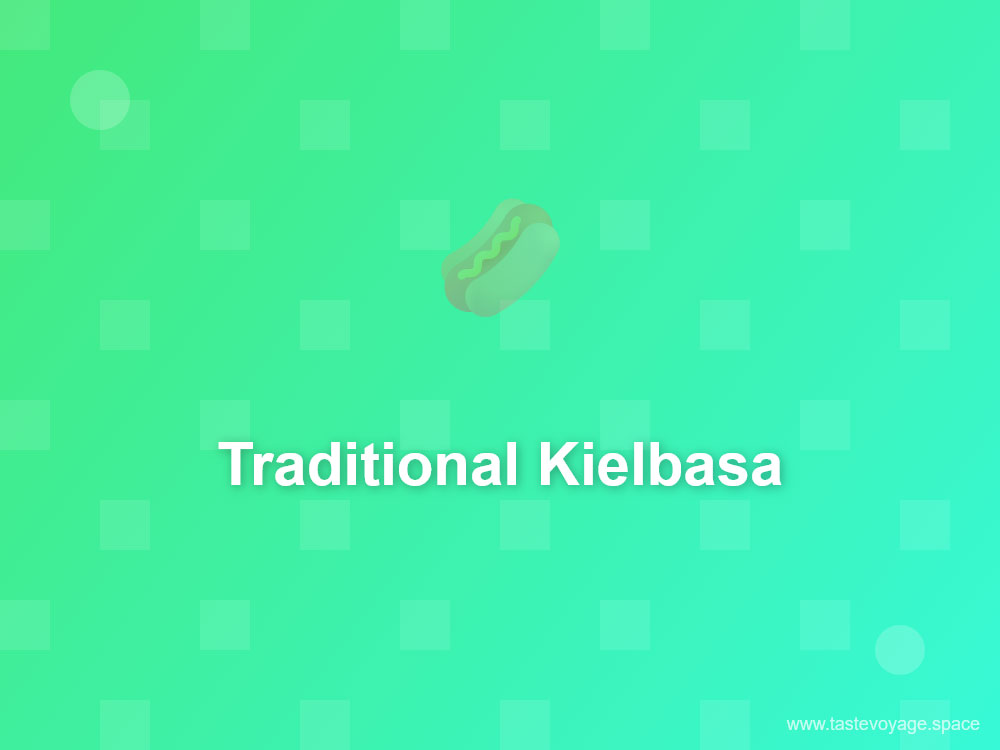Authentic Polish Kielbasa with Classic Seasoning | Easy Recipe
Travel the World Through Food >> Polish Cuisine>>Traditional Kielbasa>> Authentic Polish Kielbasa with Classic Seasoning | Easy Recipe
Authentic Polish Kielbasa with Classic Seasoning | Easy Recipe
Discovering the Charm of Classic Kielbasa with Traditional Polish Seasoning
Polish Cuisine is renowned for its hearty, flavorful dishes that celebrate centuries of culinary tradition. Among these, Classic Kielbasa with Traditional Polish Seasoning holds a special place as an iconic embodiment of Polish culinary heritage. This savory sausage is more than just a meal; it is a symbol of community, craftsmanship, and the rich tapestry of Poland’s food culture.
The Cultural Significance of Kielbasa in Polish Heritage
Kielbasa, the Polish word for sausage, has been a staple in Polish kitchens for generations. It is deeply woven into the fabric of Polish life, appearing at family gatherings, festivals, and holidays. The dish’s popularity stems from its versatility and the sense of comfort it provides. In Polish culture, kielbasa connects people to their roots and traditions, serving as a culinary bridge across generations.
Historically, kielbasa was crafted using locally sourced ingredients, reflecting the bounty of Poland’s farms and forests. Traditional methods emphasized craftsmanship and quality, with recipes passed down through families. This commitment to authenticity ensures each piece of kielbasa carries a piece of Poland’s culinary history.
The Culinary Significance of Traditional Polish Seasoning
What sets Classic Kielbasa apart is the seasoning blend that infuses it with distinctive Polish flavors. Traditional Polish seasoning typically includes a harmonious mix of garlic, marjoram, black pepper, and sometimes paprika or allspice. These spices enhance the natural flavors of high-quality meats, creating a balanced, robust taste profile.
The seasoning not only elevates the sausage but also reflects Poland’s culinary preference for bold yet refined flavors. It complements a variety of dishes, from simple Street Food to elegant family feasts. This seasoning blend highlights Poland’s appreciation for well-rounded, aromatic flavors that awaken the senses without overpowering the palate.
The Art of Crafting Classic Kielbasa
The art of making classic kielbasa involves meticulous attention to detail and a deep respect for tradition. Skilled artisans select carefully chosen cuts of pork, beef, or a combination of both, blending them with the authentic seasoning mixture. The mixture is then stuffed into natural casings, which lend a traditional look and texture to the sausage.
This process underscores the craftsmanship involved in Polish sausage-making, emphasizing quality and authenticity. Each kielbasa is a testament to the skill and dedication of the artisans who carry forward these culinary traditions.
The Role of Kielbasa in Polish Food Culture
Classic Kielbasa with Traditional Polish Seasoning embodies the spirit of Polish hospitality and communal eating. It is often enjoyed with freshly baked bread, sauerkraut, or mustard, creating a meal that is both satisfying and culturally meaningful. During celebrations, kielbasa often takes center stage, symbolizing abundance and good fortune.
Beyond its taste, kielbasa’s cultural significance lies in its ability to bring people together. It fosters shared experiences, whether at a bustling family table or a festive outdoor gathering. Its universal appeal makes it a beloved dish that continues to enrich Poland’s vibrant culinary landscape.
Embracing Poland’s Culinary Heritage
In exploring Classic Kielbasa with Traditional Polish Seasoning, one uncovers a culinary treasure that beautifully captures Poland’s rich food traditions. It is a dish that honors craftsmanship, embraces bold flavors, and celebrates communal bonds. Whether enjoyed during festive occasions or as part of everyday meals, kielbasa remains a proud symbol of Polish culinary identity.
This beloved sausage invites everyone to appreciate Poland’s culinary artistry and its enduring cultural legacy. As you savor each bite, remember that you are experiencing a piece of Poland’s history, crafted with love and tradition passed down through generations.
